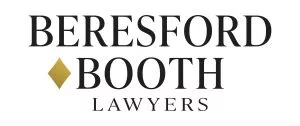- within Corporate/Commercial Law topic(s)
- with Senior Company Executives, HR and Finance and Tax Executives
- in United States
- with readers working within the Consumer Industries and Insurance industries
As Tegna and Sinclair Broadcasting propose a high-profile merger in the local television space, the headlines may seem distant from the day-to-day concerns of small business owners. But beneath the surface, this deal offers valuable insights for LLCs navigating ownership transitions, mergers, and strategic exits.
Here are four key lessons worth considering.
1. Valuation Premiums Reflect Strategic Fit
Tegna's rising valuation isn't just about market optimism—it's driven by strategic synergies, digital advertising potential, and competitive positioning. Buyers aren't just acquiring assets; they're investing in future capabilities and market leverage.
LLC takeaway: When preparing for a sale or merger, emphasize your strategic value—not just your financials. Frame your business in terms of what it enables for the buyer: access to new markets, operational efficiencies, or complementary offerings
2. Regulatory Risk Can Derail a Deal
Despite investor enthusiasm, the Tegna–Sinclair merger faces scrutiny from regulators over antitrust concerns, potential job losses, and diminished local service. Public interest considerations can override financial logic.
LLC takeaway: Even private companies—especially in regulated industries like healthcare, finance, or energy—must anticipate external objections. Build a defensible narrative around public benefit, community impact, and compliance readiness.
3. Minority Stakeholders Need Transparency
Critics of the merger have flagged a lack of clarity around post-merger governance and operational changes, raising concerns for minority shareholders and stakeholders.
LLC takeaway: Minority members in LLCs may lack voting control, but they retain important legal rights. Transparent communication, clear buy-sell agreements, and well-defined governance structures are essential to maintaining trust and avoiding disputes.
4. Deal Structure Signals Intent
The Tegna deal includes fallback options and valuation protections—mechanisms that signal seriousness and help manage investor expectations.
LLC takeaway: Structure your deal to reflect fairness and foresight. Use third-party valuations, staged closings, earn-outs, and clear exit terms to protect all parties and demonstrate credibility to potential buyers or partners.
Final Thought
Big mergers like Tegna–Sinclair may dominate headlines, but the underlying principles apply to businesses of all sizes. For LLC owners, the way you position your company, communicate with stakeholders, and structure your deals can make the difference between a smooth transition and a costly breakdown.
Whether you're planning a sale, bringing on new partners, or simply future-proofing your business, these lessons offer a roadmap for strategic, transparent, and resilient decision-making.
The content of this article is intended to provide a general guide to the subject matter. Specialist advice should be sought about your specific circumstances.


